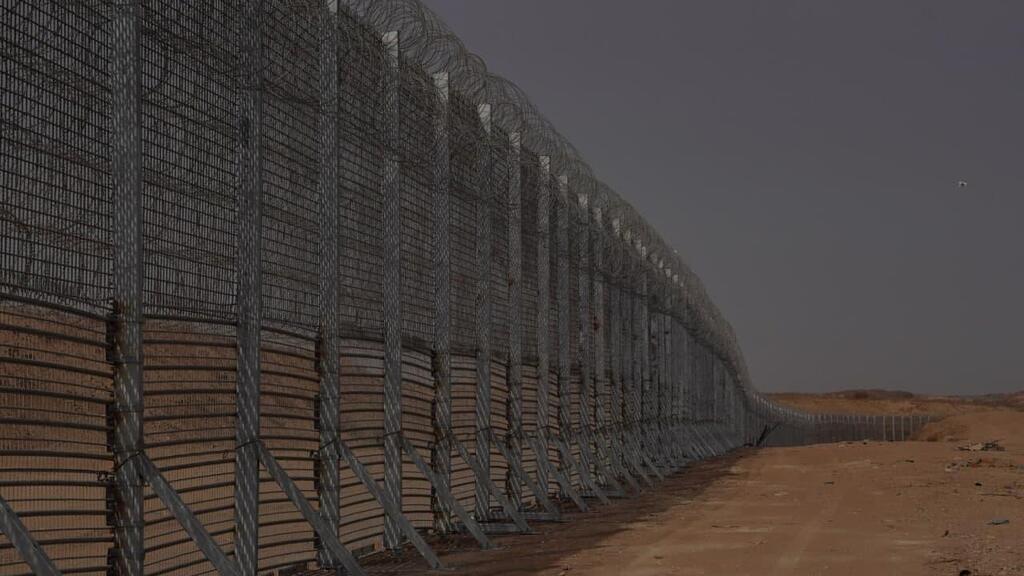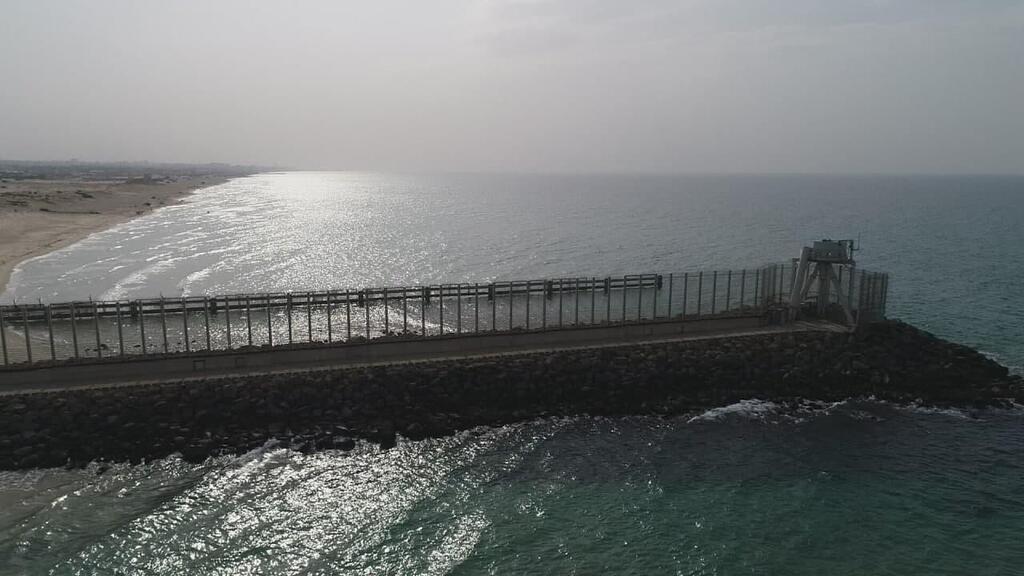Israel on Tuesday announced the completion of a sensor-equipped underground wall on its side of the Gaza border, a counter-measure developed after Hamas militants used tunnels to blindside its troops in a 2014 war.
Israel went public with the project, which also includes an above-ground fence, a naval barrier, radar systems and command and control rooms, in 2016.
"The barrier, which is an innovative and technologically advanced project, deprives Hamas of one of the capabilities it tried to develop," Defense Minister Benny Gantz said.
5 View gallery
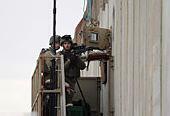

IDF soldiers man a lookout position on the new Gaza barrier on Tuesday
(Photo: Reuters)
"(It) places an 'iron wall', sensors and concrete between the terror organization and the residents of Israel's south," he said of the project, which beefs up an existing border fence.
Chief of Military Staff Aviv Kochavi said the wall was a key part of Israel's defense conception on land, air and sea. "The barrier is a game changer," he said.
"We have responded with force to any minor violation along the border and will continue to do so. We are bolstering our defenses on all fronts... including against Iran," Kochavi said.
5 View gallery
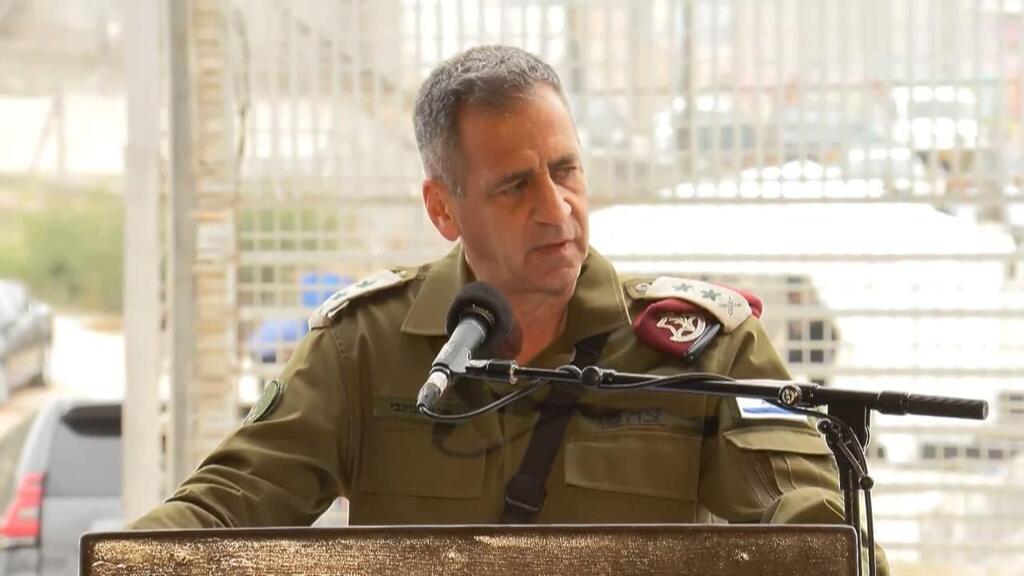

Chief of Staff Aviv Kochavi during a press conference on Tuesday, announcing the completion of the Gaza barrier
(Photo: Roee Idan)
The ministry said the barrier, which includes hundreds of cameras, radars and other sensors, spans 65 kilometers (40 miles) and that 140,000 tons of iron and steel were used in its construction, which took 3.5 years to complete.
It said the project's "smart fence" is more than 6 meters (20 feet) high and its maritime barrier includes means to detect infiltration by sea and a remote-controlled weapons system. The ministry did not disclose the depth of the underground wall.
Israel is expected to begin a similar project along its border with Lebanon early next year in order to defend against aggression from the Iran backed Hezbollah terror group, although due to the funding allocated, it will be less advanced.
Gaza also has a 14-kilometre-(8.7-mile)-long border with Egypt, which has also clamped down on crossings, citing security concerns. Since 2013, Egyptian forces have demolished smuggling tunnels while Hamas, on its side, has stepped up patrols.
Israel and Hamas have fought four wars since the Islamist group seized control the coastal Gaza Strip in 2007 from forces loyal to Palestinian President Mahmoud Abbas.
" In order to change the reality in Gaza there are simple steps that must be taken including ending Hamas's military build up, a long period of calm along the frontier and the return of Israelis held by the terror group in Gaza," Gantz said in a news conference.
5 View gallery
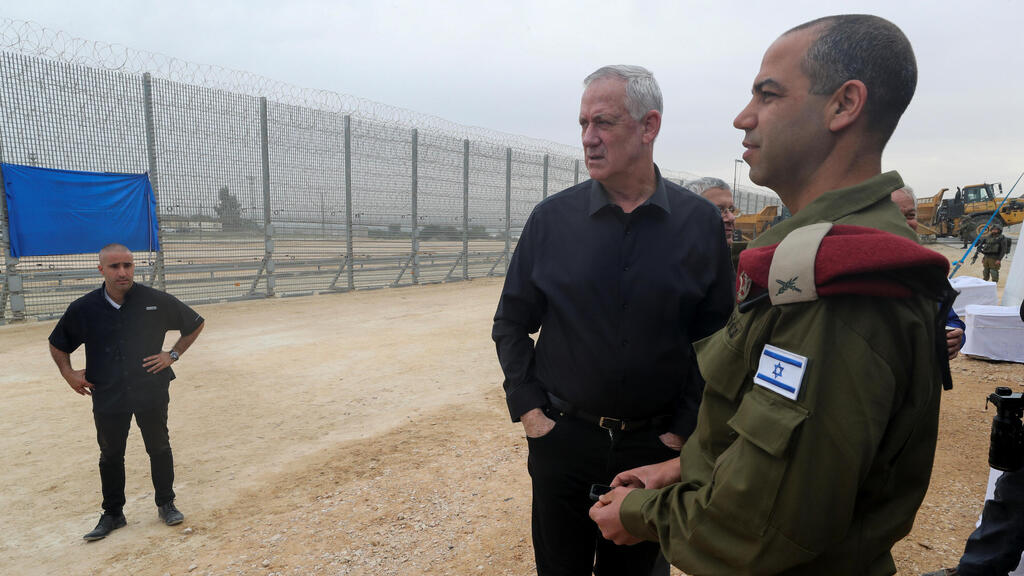

Defense Minister Benny Gantz on the border with Gaza on Tuesday at a ceremony marking the completion of the new barrier
(Photo: Reuters)
In the latest conflict, last May, Hamas and other militant groups fired more than 4,300 rockets at Israel, which deployed Iron Dome interceptors against them and carried out extensive air strikes in Gaza.
First published: 16:38, 12.07.21


